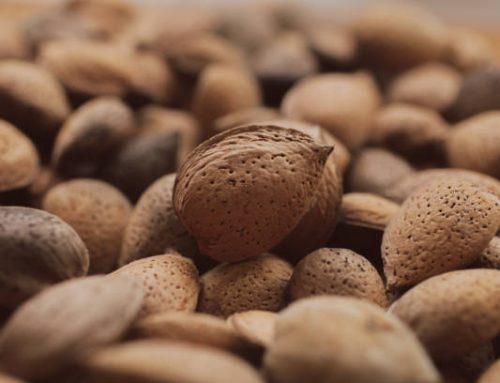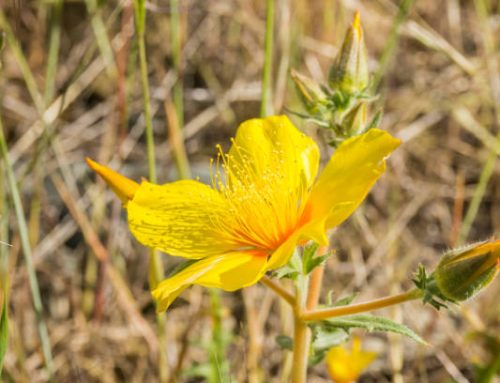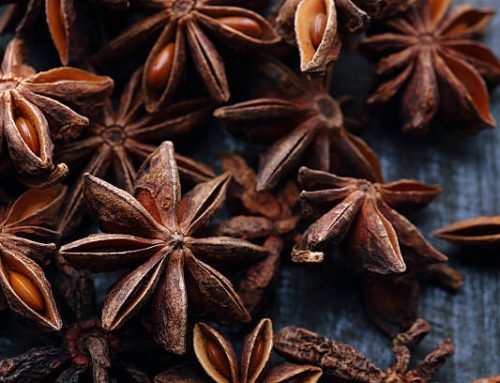Imagine walking through a field of wildflowers and coming across a sprig of herb with small yellow flowers and jagged leaves. At first glance, it might seem insignificant, but this bitter plant holds a wealth of possibilities. Known as wormwood, its uses have been documented for centuries, ranging from medicinal purposes to the production of the ultimate spirit, absinthe. Its versatility is endless and its benefits are vast, making this plant a true diamond in the rough. So, let’s take a closer look at the potent powers of wormwood and how it can elevate our lives.
1. “Unlocking the Potential of Wormwood: A Powerful and Versatile Herb”
Wormwood has been considered a powerful and versatile herb for centuries, and its abilities have been repeatedly confirmed in scientific studies. This herb has been used for everything from medical purposes to cooking and magic, making it one of the most fascinating plants in the world. Unfortunately, many people overlook the potential of this extraordinary herb and miss out on its incredible benefits.
One of the most significant benefits of wormwood is its ability to improve digestion. It is commonly used to treat digestive issues such as bloating, constipation, and gas. It is also said to stimulate the production of bile and improve liver function, which can help the body eliminate toxins and promote overall health.
Wormwood has also been used for its antifungal and antibacterial properties. The presence of thujone, a powerful component of wormwood, has been shown to help fight against harmful bacteria and fungi. Additionally, it possesses anti-inflammatory properties and antioxidants that protect against cell damage and aging.
Another exciting use of wormwood is in the field of mental health. Studies have linked the consumption of wormwood to improved memory and cognitive function. It may also have antidepressant and anxiety-reducing effects. This gives wormwood not only physical but also mental benefits, making it a great herb to add to your daily routine.
In conclusion, wormwood is a potent and versatile herb that should not be ignored. Its benefits range from digestive health to mental well-being, making it an excellent addition to any diet. So why not unlock the potential of wormwood and explore its many possibilities? It’s time to unleash the power of this incredible plant!
2. “Bitterness as a Blessing: The Surprising Benefits of Wormwood”
Bitterness is often viewed with distaste, but did you know that a bitter herb known as Wormwood can actually bring blessings in your life? Here are some of the surprising benefits of incorporating Wormwood into your daily routine:
- Improves Digestion: Wormwood has been used for centuries as a digestive aid. It helps promote the production of digestive juices, which can help alleviate bloating, flatulence and other indigestion-related symptoms.
- Boosts Immunity: Wormwood is rich in essential oils and flavonoids that help stimulate the production of white blood cells. This can help boost your immunity, enabling your body to fight off infections and illnesses.
- Relieves Stress and Anxiety: Wormwood contains a compound called thujone, which acts as a natural sedative. It can help alleviate stress and anxiety, helping you feel more relaxed and at ease.
- Acts as a Natural Insect Repellent: Wormwood has a strong, bitter odor that repels many insects, including mosquitoes and flies. By incorporating it into your garden or using it as an ingredient in natural insect repellents, you can ward off unwanted pests without using harmful chemicals.
While Wormwood may not be the most pleasant-tasting herb, its benefits are undeniable. By embracing its bitterness, you can experience a variety of blessings in your life. Whether you’re looking to improve your digestion, boost your immunity, alleviate stress and anxiety, or keep pests at bay, Wormwood is an excellent addition to your daily routine.
3. “Beyond Cocktails: How Wormwood is Revolutionizing Medicine and Health”
Wormwood has long been known as the key ingredient in the infamous drink absinthe. But did you know that this bitter herb has a much greater role to play beyond cocktails? In recent years, wormwood has been hailed as a game-changer in the field of medicine and health, showing immense promise in treating a range of conditions. Here’s how.
- Alternative Treatment for Malaria
Artemisinin, a compound found in wormwood, is a potent antimalarial agent. In fact, it is currently the most effective drug available for treating malaria, killing the parasite responsible for the disease in just a few hours. Its success rate has prompted the World Health Organization to recommend artemisinin-based combination therapy for the treatment of malaria, especially in areas with high transmission rates.
- Promotes Digestive Health
Wormwood has been used to treat digestive issues such as bloating, gas, and poor appetite. Its bitter taste stimulates the production of digestive juices, helping to break down food more effectively. Moreover, wormwood contains antimicrobial properties that can help eliminate harmful bacteria in the gut. A healthy digestive system is vital for overall health and wellness, and wormwood can be a natural and effective way to support it.
- Treats Anxiety and Depression
Wormwood has a calming effect on the nervous system and can help in managing anxiety and depression. It contains thujone, a chemical compound that acts as a GABA receptor antagonist, influencing the levels of dopamine and serotonin in the brain. This mechanism leads to a reduction in anxiety and increased feelings of relaxation and well-being.
- Potential Cancer-Fighting Properties
Studies have shown that wormwood has anti-cancer properties and can kill cancer cells in vitro. Its active compound, artemisinin, has shown promising results in treating breast, colon, and liver cancer. The compound selectively targets cancer cells, leaving healthy cells unharmed, making it a promising alternative to traditional cancer treatments that often come with severe side effects.
As you can see, wormwood is a true marvel of nature, offering a range of health benefits across the board. Its potential in treating some of the most debilitating conditions underscores the need to explore natural alternatives to traditional medicine, and with continued research into its uses, wormwood could very well revolutionize the field of medicine and health.
4. “A New Era of Wellness: Wormwood’s Promise for Mental and Emotional Healing”
A New Era of Wellness: Wormwood’s Promise for Mental and Emotional Healing
Wormwood, also known as Artemisia absinthium, is a herb that has been used for centuries to treat various ailments. However, it’s only recently that researchers have discovered its potential to promote mental and emotional wellness.
Studies have shown that wormwood has powerful anti-inflammatory and antioxidant properties that can help reduce stress and anxiety. Wormwood is also known to improve digestion and promote better sleep, which can have a significant impact on mental health.
But what makes wormwood truly unique is its ability to enhance cognitive function. Wormwood contains thujone, a compound that has been shown to improve memory and concentration. This makes wormwood an excellent natural remedy for people struggling with focus and productivity.
- Promotes Relaxation: Wormwood can promote a sense of calm, making it an effective natural remedy for stress and anxiety.
- Improves Digestion: Wormwood can help soothe digestive issues such as bloating and constipation, which can impact mental health.
- Enhances Cognitive Function: The thujone in wormwood has been shown to improve memory and concentration. This makes wormwood an excellent natural remedy for people struggling with focus and productivity.
As more people turn to natural remedies for mental and emotional health, wormwood is quickly gaining popularity as a safe and effective alternative to prescription medication.
In conclusion, the promise of wormwood for mental and emotional healing is vast. It’s time for a new era of wellness, one in which we embrace natural remedies like wormwood to promote holistic health and wellbeing.
5. “From Ancient Wisdom to Modern Science: Wormwood’s Journey to the Forefront of Alternative Medicine
From Ancient Wisdom to Modern Science: Wormwood‘s Journey to the Forefront of Alternative Medicine
For centuries, wormwood has been used for a variety of medicinal purposes. From ancient cultures to modern times, this herb has been revered for its therapeutic properties, making it one of the most sought-after alternatives in medicine. As a result, wormwood has moved to the forefront of alternative medicine today.
Wormwood‘s journey to popularity started from the ancient Greeks, who used the herb to treat a host of ailments ranging from digestive issues, fever, and even malaria. Later on, the Romans adopted its use, with Pliny the Elder adopting wormwood as an ingredient in his recipes for easing stomach pains.
Fast forward to modern times, and wormwood remains one of the most promising alternatives for treating medical problems holistically. As a potent antioxidant, wormwood’s healing properties work to protect our bodies from free radicals that cause harm at cellular levels, leading to illnesses such as cancer, diabetes, and heart disease.
Moreover, wormwood’s natural antifungal, antimicrobial, and anti-inflammatory properties make it an all-around treatment option for ailments such as yeast infections, UTIs, and other forms of inflammations.
Its curious name, wormwood, has roots in its use as an anthelmintic (a medication for treating parasitic worms) during the Middle Ages, earning it the name Jesus’ bitter cup in Christian literature.
Today, wormwood’s journey continues to push the borders of modern medicinal practices. Scientists have been studying its properties, and research shows that wormwood could be an effective treatment option for patients with cancer, with Artemisinin, a compound found in wormwood, showing promise in fighting cancer cells. Further research is also underway to explore its potential implication in treating Malaria.
As we have seen, wormwood is a bitter herb with a fascinating history and a complex chemistry that offers numerous potential benefits. From its traditional uses as a digestive aid and a vermifuge, to its modern applications in pharmacology, perfumery, and even art, wormwood has proven to be a versatile plant that deserves further exploration. Whether you are a foodie looking to experiment with new flavors, a herbalist seeking to expand your toolkit, or a curious mind eager to learn more about nature’s wonders, wormwood has something to offer. So go ahead, give wormwood a try, and discover the endless possibilities that await you!
FAQ:
Q: What is wormwood, and why is it called “bitter”?
A: Wormwood (Artemisia absinthium) is a plant native to Europe and Asia that belongs to the Asteraceae family. It has silvery-green leaves and yellow flowers, and grows in arid and rocky soils. Wormwood is called “bitter” because it contains several compounds, such as absinthin and anabsinthin, that stimulate the taste buds responsible for detecting bitterness. Bitterness is a common flavor in many plants and is often associated with digestive and tonic properties.
Q: Is wormwood safe to consume, or does it have any side effects?
A: Wormwood is generally safe when used in moderation and under supervision. However, it contains thujone, a neurotoxic compound that can cause seizures and other adverse effects if consumed in large amounts or for a prolonged period. Thujone is also present in other plants, such as sage, tarragon, and juniper, but wormwood has higher concentrations. Therefore, it is advisable to avoid excessive or prolonged use of wormwood, especially if you are pregnant, breastfeeding, or have a history of seizures.
Q: What are the main medicinal uses of wormwood, and how do they work?
A: Wormwood has been traditionally used for many medicinal purposes, such as stimulating digestion, relieving fever, and expelling parasites. Wormwood contains volatile oils, such as camphor and thujone, that have antiseptic, anti-inflammatory, and anthelmintic properties. These oils can also stimulate the production of bile and gastric juices, thus improving digestion and appetite. Moreover, wormwood has been studied for its potential anticancer, antifungal, and antimicrobial effects, but more research is needed to confirm these claims.
Q: Can wormwood be used in cooking, and what dishes pair well with it?
A: Wormwood can add a unique and intense flavor to many culinary creations, but it should be used sparingly to avoid overpowering the dish. Wormwood pairs well with dishes that have a strong or fatty taste, such as game meats, fatty fish, and rich sauces. It can also be used in desserts that contain chocolate or caramel, as it can balance their sweetness with its bitterness. A classic recipe that features wormwood is the French liqueur absinthe, which is made by macerating wormwood, anise, and fennel in alcohol.
Q: What other uses does wormwood have besides medicine and cooking?
A: Wormwood has been used for many other purposes throughout history and across cultures. For instance, it was regarded as a sacred plant by the ancient Egyptians, who used it as an embalming agent and as a symbol of protection against evil spirits. Wormwood has also been used as a natural dye for fabrics, as it gives a yellow or greenish tint to the fibers. In addition, wormwood can be a noteworthy element in traditional or modern perfumery, as its scent has a bitter-sweet and slightly woody profile that can add depth and complexity to fragrances.





